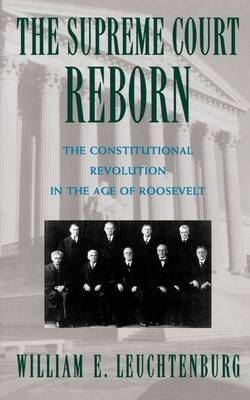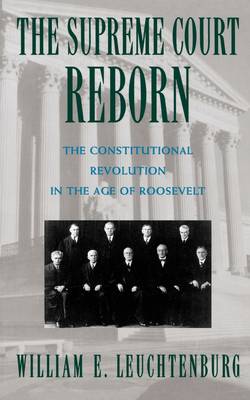
- Retrait en 2 heures
- Assortiment impressionnant
- Paiement sécurisé
- Toujours un magasin près de chez vous
- Retrait gratuit dans votre magasin Club
- 7.000.0000 titres dans notre catalogue
- Payer en toute sécurité
- Toujours un magasin près de chez vous
The Supreme Court Reborn
The Constitutional Revolution in the Age of Roosevelt
William E LeuchtenburgDescription
In "The Supreme Court Reborn," William E. Leuchtenburg deftly portrays the events leading up to Roosevelt's showdown with the Supreme Court, from the Court's relentless invalidation of regulatory laws to Roosevelt's notorious "Court-packing plan" which would have allowed the president to add one new justice for every sitting justice over the age of seventy. In fascinating detail Leuchtenburg shows that as a consequence of the Constitutional revolution that began in 1937, not only was the New Deal upheld (as precedent after precedent was overturned), but the Court also began a dramatic expansion of civil liberties that would culminate in the Warren Court.
This superbly crafted book sheds new light on the great Constitutional crisis of the century, illuminating the legal and political battles that created today's Supreme Court.
Spécifications
Parties prenantes
- Auteur(s) :
- Editeur:
Contenu
- Nombre de pages :
- 368
- Langue:
- Anglais
Caractéristiques
- EAN:
- 9780195111316
- Date de parution :
- 10-10-96
- Format:
- Livre broché
- Format numérique:
- Trade paperback (VS)
- Dimensions :
- 134 mm x 201 mm
- Poids :
- 308 g

Seulement chez Librairie Club
Les avis
Nous publions uniquement les avis qui respectent les conditions requises. Consultez nos conditions pour les avis.





